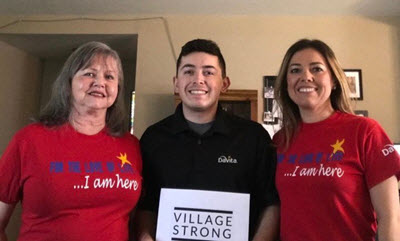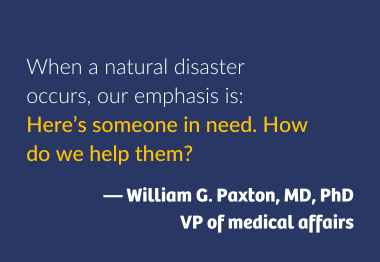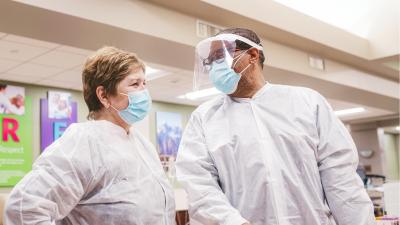Nurse Comes out of Retirement to Deliver Care in the Face of Pandemic

After 49 years in nursing, Christine Banda finally retired at the end of January and settled into a new home in Arizona. Two months later, she received an email from her former employer, DaVita.
Dialysis patients are often more at risk for COVID-19 because they have underlying health conditions and may be older. To increase support for these patients, DaVita reached out to former and retired teammates with the clinical experience and training needed to quickly return to patient care during the pandemic. Banda was one of 1,500 former DaVita teammates who answered the call.
“I had no second thoughts,” says Banda. “I thought, these patients are so at risk. If I can help keep them healthy, then I can help keep them out of the hospital.”
Therefore, at the age of 68 and barely three months into retirement, Banda dusted off her scrubs and returned to work at DaVita Stockton Kidney Center in her home state of California. Banda’s 12 hour shifts begin at 4 a.m. every Monday, Wednesday and Friday.
Bringing back alumni teammates reduces the strain on care teams. They create “break” opportunities for frontline teammates in areas of need and also provide flexibility so that providers can create designated treatment times and centers to care for COVID-19 positive dialysis patients and those under investigation.
The world inside Banda’s dialysis center looks different today with screening and temperatures taken at the door, and masks on every person in the center. Still, she does not look back, “I’m a nurse, I’ll always be a nurse. It’s what I do.”
Banda is pictured here with her daughter Frances and grandson Benjamin. Together they are three generations supporting DaVita dialysis patients in California. Each one of them has stepped up in their respective roles as DaVita teammates to provide support where needed – whether it’s her daughter Frances, tracking the virus’ impact to Sacramento dialysis patients or her grandson Benjamin, delivering medical supplies and disinfecting dialysis machines at DaVita acute programs in local hospitals.
Together, the family has supported each other through the pandemic, knowing that the work they are doing is essential to maintain care for at-risk patients.








